The widespread reluctance on the part of many Catholic thinkers
to enter into a profound examination of the apocalyptic elements of contemporary life is,
I believe, part of the very problem which they seek to avoid.
If apocalyptic thinking is left largely to those who have been subjectivized
or who have fallen prey to the vertigo of cosmic terror,
then the Christian community, indeed the whole human community, is radically impoverished.
And that can be measured in terms of lost human souls.
–Author, Michael D. O’Brien, talk “Are We Living In Apocalyptic Times?”
Have your friends or family said that you are crazy or a “conspiracy theorist”? That you are paranoid, unbalanced, radical or unhinged? Has your local priest, theologian or bishop scoffed at the notion that we could be living in the “end times”? Are you mocked as an “apparition chaser” or part of a lunatic fringe engaged in “baptized astrology”? Don’t sweat it. Just send them here and tell them, “I’m following the popes on this one”…
There is a great uneasiness at this time in the world and in the Church, and that which is in question is the faith. It so happens now that I repeat to myself the obscure phrase of Jesus in the Gospel of St. Luke: ‘When the Son of Man returns, will He still find faith on the earth?’…I sometimes read the Gospel passage of the end times and I attest that, at this time, some signs of this end are emerging. —POPE PAUL VI, The Secret Paul VI, Jean Guitton, p. 152-153, Reference (7), p. ix.
…he who resists the truth through malice and turns away from it, sins most grievously against the Holy Ghost. In our days this sin has become so frequent that those dark times seem to have come which were foretold by St. Paul, in which men, blinded by the just judgment of God, should take falsehood for truth, and should believe in “the prince of this world,” who is a liar and the father thereof, as a teacher of truth: “God shall send them the operation of error, to believe lying (2 Thess. ii., 10). In the last times some shall depart from the faith, giving heed to spirits of error and the doctrines of devils” (1 Tim. iv., 1). —POPE LEO XIII, Divinum Illud Munus, n. 10
Who can fail to see that society is at the present time, more than in any past age, suffering from a terrible and deep-rooted malady which, developing every day and eating into its inmost being, is dragging it to destruction? You understand, Venerable Brethren, what this disease is—apostasy from God… When all this is considered there is good reason to fear lest this great perversity may be as it were a foretaste, and perhaps the beginning of those evils which are reserved for the last days; and that there may be already in the world the “Son of Perdition” of whom the Apostle speaks. —POPE ST. PIUS X, E Supremi, Encyclical On the Restoration of All Things in Christ, n. 3, 5; October 4th, 1903
Certainly those days would seem to have come upon us of which Christ Our Lord foretold: “You shall hear of wars and rumours of wars—for nation shall rise against nation, and kingdom against kingdom” (Matt. xxiv, 6, 7)… Moved by these great evils, we thought it our duty, at the very outset of our Supreme Pontificate, to recall the last words of our Predecessor of illustrious and holy memory, and by repeating them once more to begin our own Apostolic Ministry; and we implored Kings and rulers to consider the floods of tears and of blood already poured out, and to hasten to restore to the nations the blessings of peace. God grant by His mercy and blessing, that the glad tidings the Angels brought at the birth of the divine Redeemer of mankind may soon echo forth as we His Vicar enter upon His Work: “on earth peace to men of good will” (Luke ii. 14). —POPE BENEDICT XV, Ad Beatissimi Apostolorum, November 1st, 1914; no. 3-4
These things in truth are so sad that you might say that such events foreshadow and portend the “beginning of sorrows,” that is to say of those that shall be brought by the man of sin, “who is lifted up above all that is called God or is worshipped” (2 Thessalonians ii, 4)… all these evils as it were culminate in the cowardice and the sloth of those who, after the manner of the sleeping and fleeing disciples, wavering in their faith, miserably forsake Christ when He is oppressed by anguish or surrounded by the satellites of Satan, and in the perfidy of those others who following the example of the traitor Judas, either partake of the holy table rashly and sacrilegiously, or go over to the camp of the enemy. And thus, even against our will, the thought rises in the mind that now those days draw near of which Our Lord prophesied: “And because iniquity hath abounded, the charity of many shall grow cold” (Matth. xxiv, 12). —POPE PIUS XI, Miserentissimus Redemptor, Encyclical on Reparation to the Sacred Heart; nos. 16-17
We are now facing the final confrontation between the Church and the anti-church, between the Gospel and the anti-gospel, between Christ and the antichrist. This confrontation lies within the plans of divine Providence; it is a trial which the whole Church, and the Polish Church in particular, must take up. It is a trial of not only our nation and the Church, but in a sense a test of 2,000 years of culture and Christian civilization, with all of its consequences for human dignity, individual rights, human rights and the rights of nations. —Cardinal Karol Wojtyla (JOHN PAUL II ), at the Eucharistic Congress, Philadelphia, PA for the bicentennial celebration of the signing of the Declaration of Independence; some citations of this passage include the words “Christ and the antichrist” as above. Deacon Keith Fournier, an attendee, reports it as above; cf. Catholic Online; August 13, 1976
In announcing the Year of Mary, I also indicated that it will end next year on the Solemnity of the Assumption of the Blessed Virgin into heaven, in order to emphasize the “great sign in heaven” spoken of by the Apocalypse. In this way we also wish to respond to the exhortation of the Council, which looks to Mary as “a sign of sure hope and solace for the pilgrim People of God”… As we see from the words of the Protogospel, the victory of the woman’s Son will not take place without a hard struggle, a struggle that is to extend through the whole of human history. The “enmity,” foretold at the beginning, is confirmed in the Apocalypse (the book of the final events of the Church and the world), in which there recurs the sign of the “woman,” this time “clothed with the sun” (Rev. 12:1). —POPE JOHN PAUL II, Redemptoris Mater, nos. 50, 11
This struggle parallels the apocalyptic combat described in the First Reading of this Mass (Rev 11:19-12:1-6) Death battles against Life: a “culture of death” seeks to impose itself on our desire to live, and live to the full. There are those who reject the light of life, preferring “the fruitless works of darkness” (Eph 5:11). Their harvest is injustice, discrimination, exploitation, deceit, violence. In every age, a measure of their apparent success is the death of the Innocents. In our own century, as at no other time in history, the “culture of death” has assumed a social and institutional form of legality to justify the most horrible crimes against humanity: genocide, “final solutions”, “ethnic cleansings”, and the massive “taking of lives of human beings even before they are born, or before they reach the natural point of death… Rights are affirmed but, because they are without any reference to an objective truth, they are deprived of any solid basis. Vast sectors of society are confused about what is right and what is wrong, and are at the mercy of those with the power to “create” opinion and impose it on others. —POPE JOHN PAUL II, Cherry Creek State Park Homily, Denver, Colorado, August 15th, 1993
In a discussion with a select group of German Catholics, St. John Paul II reportedly was asked “What about the Third Secret of Fatima? Should it not have already been published by 1960?” He replied:
Given the seriousness of the contents, my predecessors in the Petrine office diplomatically preferred to postpone publication so as not to encourage the world power of Communism to make certain moves.* We must be prepared to undergo great trials in the not-too-distant future; trials that will require us to be ready to give up even our lives, and a total gift of self to Christ and for Christ. Through your prayers and mine, it is possible to alleviate this tribulation, but it is no longer possible to avert it, because it is only in this way that the Church can be effectively renewed. How many times, indeed, has the renewal of the Church been effected in blood? This time, again, it will not be otherwise. We must be strong, we must prepare ourselves, we must entrust ourselves to Christ and to His Mother, and we must be attentive, very attentive, to the prayer of the Rosary.** —POPE JOHN PAUL II, interview with Catholics at Fulda, Germany, Nov. 1980; * fatima.org; ** ewtn.com; published in the German Magazine, “Stimme des Glaubens,” English found in Daniel J. Lynch, “The Call to Total Consecration to the Immaculate Heart of Mary” (St. Albans, Vermont: Missions of the Sorrowful and Immaculate Heart of Mary, Pub., 1991), pp. 50-51
Concerning this battle in which we find ourselves… chapter 12 of Revelations mentions these… It has been said that the dragon places a large river of water before the fleeing woman to overcome her. And it would seem inevitable that the woman will drown in this river. But the good earth absorbs this river and it cannot be harmful. I think that the river is easily interpreted: these are the currents that dominate all and wish to make faith in the Church disappear, the Church that seems no longer to have a place in the face of the force of these currents that impose themselves as the only rationality, as the only way to live. —POPE BENEDICT XVI, Meditation at the first session of the special assembly of bishops in the Middle East, October 11th, 2010; vatican.va
…without the guidance of charity in truth, this global force could cause unprecedented damage and create new divisions within the human family… humanity runs new risks of enslavement and manipulation. —POPE BENEDICT XVI, Caritas in Veritate, n. 33
Modern society is in the middle of formulating an anti-Christian creed, and if one opposes it, one is being punished by society with excommunication… The fear of this spiritual power of the Anti-Christ is then only more than natural, and it really needs the help of prayers on the part of an entire diocese and of the Universal Church in order to resist it. —POPE BENEDICT XVI The Biography: Volume One, by Peter Seewald (2020); translated from the Italian
The Apocalypse speaks about God’s antagonist, the beast. This animal does not have a name, but a number. In [the horror of the concentration camps], they cancel faces and history, transforming man into a number, reducing him to a cog in an enormous machine. Man is no more than a function. In our days, we should not forget that they prefigured the destiny of a world that runs the risk of adopting the same structure of the concentration camps, if the universal law of the machine is accepted. The machines that have been constructed impose the same law. According to this logic, man must be interpreted by a computer and this is only possible if translated into numbers. The beast is a number and transforms into numbers. God, however, has a name and calls by name. He is a person and looks for the person. —Cardinal Ratzinger, (POPE BENEDICT XVI) Palermo, March 15th, 2000; aleteia.org
We think of the great powers of the present day, of the anonymous financial interests which turn men into slaves, which are no longer human things, but are an anonymous power which men serve, by which men are tormented and even slaughtered. They are a destructive power, a power that menaces the world. —POPE BENEDICT XVI, Meditation at the first session of the special assembly of bishops in the Middle East, October 11th, 2010; vatican.va
A new tyranny is thus born, invisible and often virtual, which unilaterally and relentlessly imposes its own laws and rules… In this system, which tends to devour everything which stands in the way of increased profits, whatever is fragile, like the environment, is defenseless before the interests of a deified market, which become the only rule. —POPE FRANCIS, Evangelii Gaudium, n. 56
It is not the beautiful globalization of unity of all Nations, each one with their own customs, instead it is the globalization of hegemonic uniformity, it is the single thought. And this sole thought is the fruit of worldliness. —POPE FRANCIS, Homily, November 18th, 2013; Zenit
“Still today, the spirit of worldliness leads us to progressivism, to this uniformity of thought… Negotiating one’s fidelity to God is like negotiating one’s identity.” Francis then made reference to the 20th-century novel Lord of the World by Robert Hugh Benson (son of the Archbishop of Canterbury Edward White Benson), a novel about the Antichrist in which the author speaks of the spirit of the world that leads to apostasy “almost as though it were a prophecy, as though he envisioned what would happen,” said Francis. —Catholic Culture, January 20th, 2015
Apostasy. That is, worldliness that leads you to one unique thought, and to apostasy. —POPE FRANCIS, Homily, November 16th, 2015; indcatholicnews.com
The horrors of the manipulation of education that we experienced in the great genocidal dictatorships of the 20th century have not disappeared; they have retained a current relevance under various guises and proposals and, with the pretense of modernity, push children and young people to walk on the dictatorial path of “only one form of thought”. A little over a week ago a great teacher said to me… “At times with these projects — referring to actual educational projects — one doesn’t know whether the child is going to school or to a re-education camp”. —POPE FRANCIS, message to members of BICE (International Catholic Child Bureau); Vatican Radio, April 11th, 2014; vatican.va
Taken from Why Aren’t the Popes Shouting? by Mark Mallett at The Now Word.

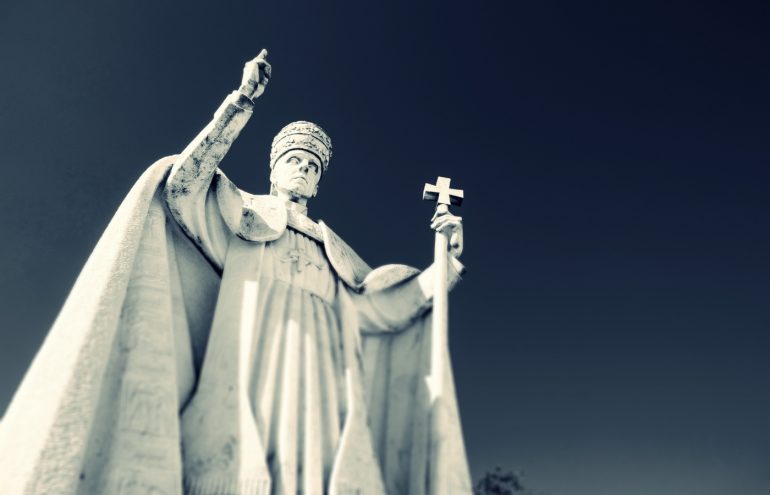

 Alicja Lenczewska
Alicja Lenczewska

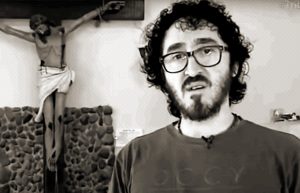
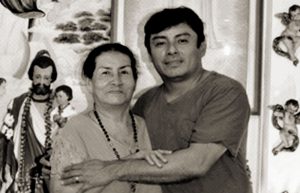
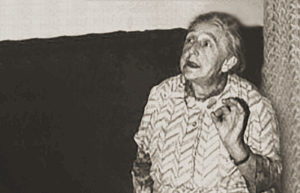 Elizabeth Kindelmann
Elizabeth Kindelmann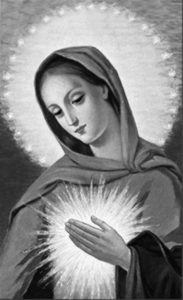 Through what became The Spiritual Diary, Jesus and Mary taught Elizabeth, and they continue to instruct the faithful in the divine art of suffering for the salvation of souls. Tasks are assigned for each day of the week, which involve prayer, fasting, and night vigils, with beautiful promises attached to them, laced with special graces for priests and the souls in purgatory. In their messages, Jesus and Mary say that The Flame of Love of the Immaculate Heart of Mary is the greatest grace given to mankind since the Incarnation. And in the not-so-distant future, her flame will engulf the entire world.
Through what became The Spiritual Diary, Jesus and Mary taught Elizabeth, and they continue to instruct the faithful in the divine art of suffering for the salvation of souls. Tasks are assigned for each day of the week, which involve prayer, fasting, and night vigils, with beautiful promises attached to them, laced with special graces for priests and the souls in purgatory. In their messages, Jesus and Mary say that The Flame of Love of the Immaculate Heart of Mary is the greatest grace given to mankind since the Incarnation. And in the not-so-distant future, her flame will engulf the entire world.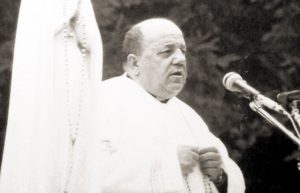 Father Stefano Gobbi
Father Stefano Gobbi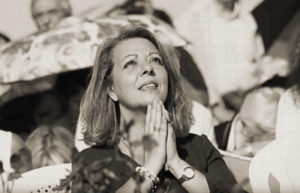 Why Gisella Cardia?
Why Gisella Cardia?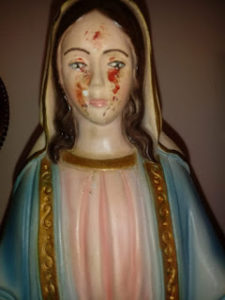 Thirdly, the messages have frequently been accompanied by visible phenomena, photographic evidence found in In Cammino con Maria, which cannot be the fruit of subjective imagination, notably the presence of the stigmata on Giselle’s body and and the appearance of crosses or religious texts in blood on Gisella’s arms. See the pictures taken from her apparition website
Thirdly, the messages have frequently been accompanied by visible phenomena, photographic evidence found in In Cammino con Maria, which cannot be the fruit of subjective imagination, notably the presence of the stigmata on Giselle’s body and and the appearance of crosses or religious texts in blood on Gisella’s arms. See the pictures taken from her apparition website 
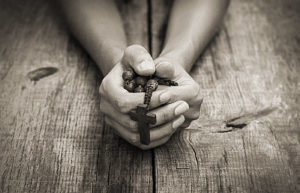 Jennifer
Jennifer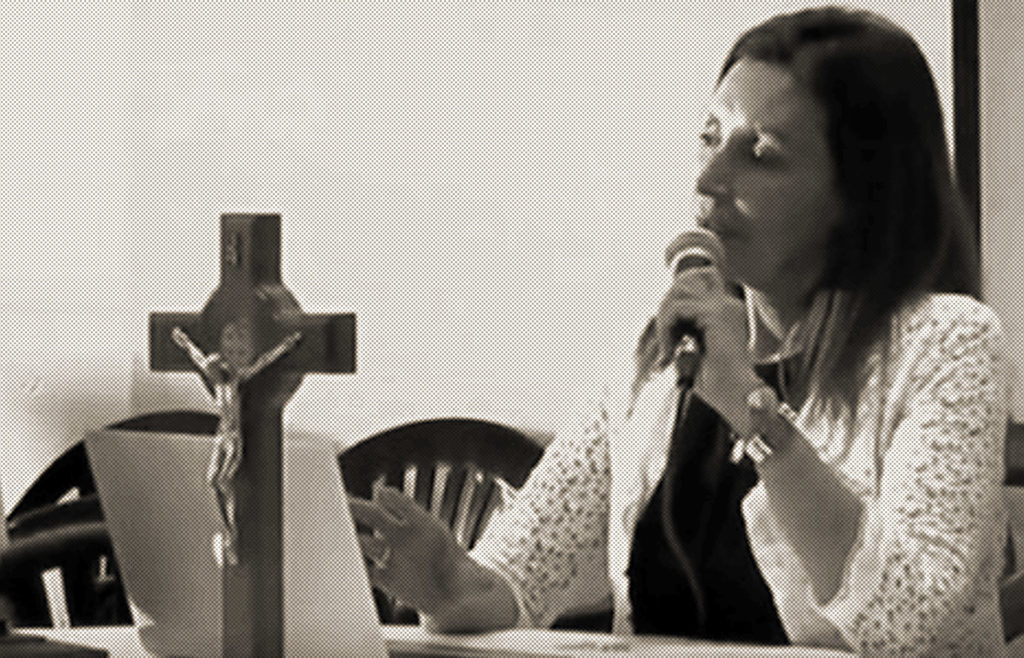
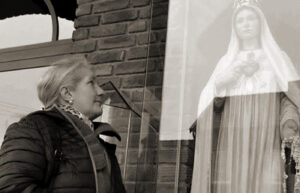 Why Manuela Strack?
Why Manuela Strack?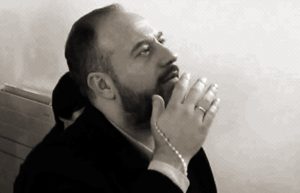

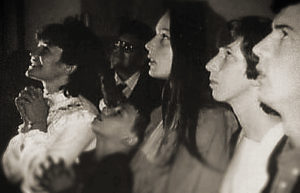 Why the Visionaries of Our Lady of Medjugorje?
Why the Visionaries of Our Lady of Medjugorje?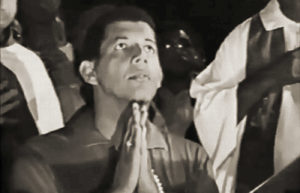 Why Pedro Regis?
Why Pedro Regis?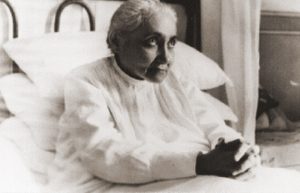 Why the Servant of God Luisa Piccarreta?
Why the Servant of God Luisa Piccarreta? of the saints. It wasn’t until she became a “Daughter of Mary” that the nightmares finally ceased at the age of eleven. In the following year, Jesus began to speak interiorly to her especially after receiving Holy Communion. When she was thirteen, He appeared to her in a vision that she witnessed from the balcony of her home. There, in the street below, she saw a crowd and armed soldiers leading three prisoners; she recognized Jesus as one of them. When He arrived beneath her balcony, He raised his head and cried out: “Soul, help Me!” Deeply moved, Luisa offered herself from that day on as a victim soul in expiation for the sins of mankind.
of the saints. It wasn’t until she became a “Daughter of Mary” that the nightmares finally ceased at the age of eleven. In the following year, Jesus began to speak interiorly to her especially after receiving Holy Communion. When she was thirteen, He appeared to her in a vision that she witnessed from the balcony of her home. There, in the street below, she saw a crowd and armed soldiers leading three prisoners; she recognized Jesus as one of them. When He arrived beneath her balcony, He raised his head and cried out: “Soul, help Me!” Deeply moved, Luisa offered herself from that day on as a victim soul in expiation for the sins of mankind. immobile, rigid-like state that appeared almost as if she were dead. It was only when a priest made the sign of the Cross over her body that Luisa regained her faculties. This remarkable mystical state persisted until her death in 1947—followed by a funeral that was no little affair. During that period in her life, she suffered no physical illness (until she succumbed to pneumonia at the end) and she never experienced bedsores, despite being confined to her little bed for sixty-four years.
immobile, rigid-like state that appeared almost as if she were dead. It was only when a priest made the sign of the Cross over her body that Luisa regained her faculties. This remarkable mystical state persisted until her death in 1947—followed by a funeral that was no little affair. During that period in her life, she suffered no physical illness (until she succumbed to pneumonia at the end) and she never experienced bedsores, despite being confined to her little bed for sixty-four years.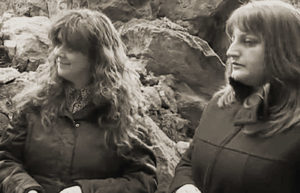 Why Simona and Angela?
Why Simona and Angela?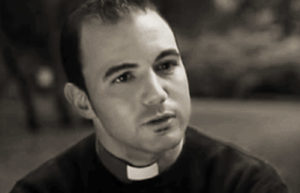
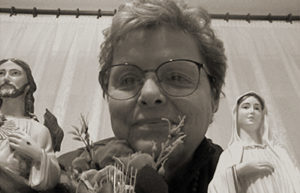 Valeria Copponi
Valeria Copponi